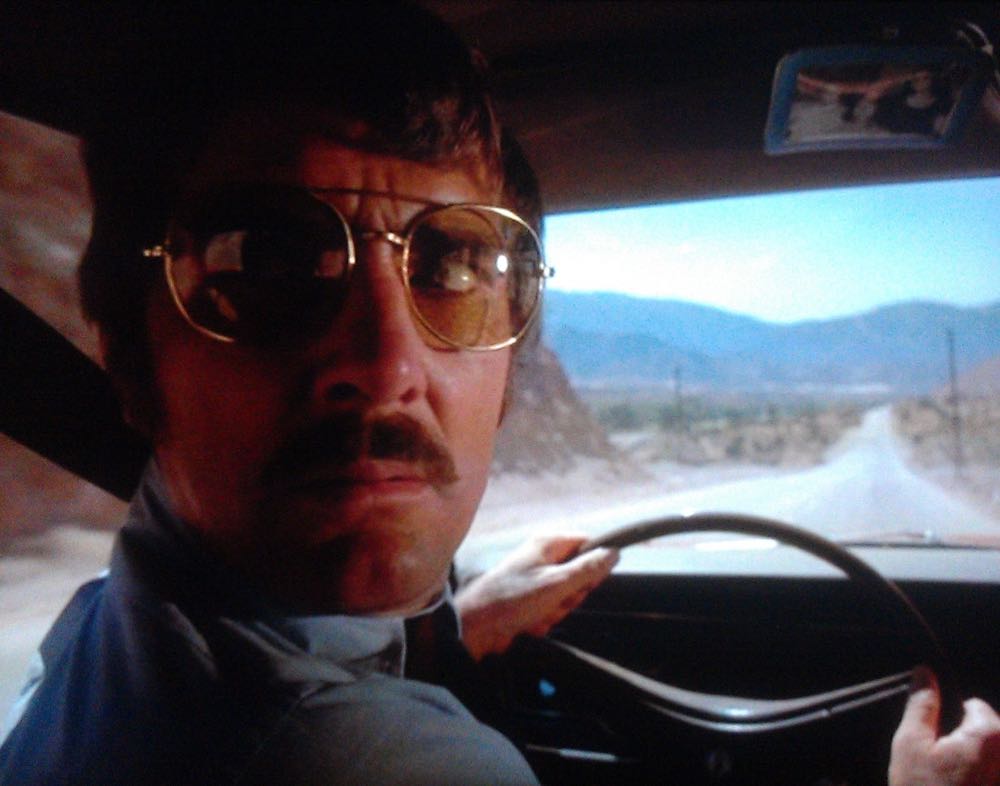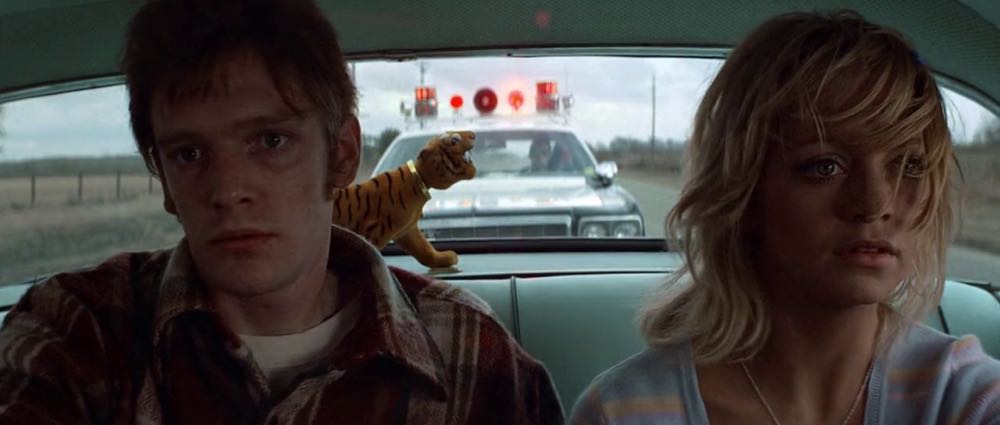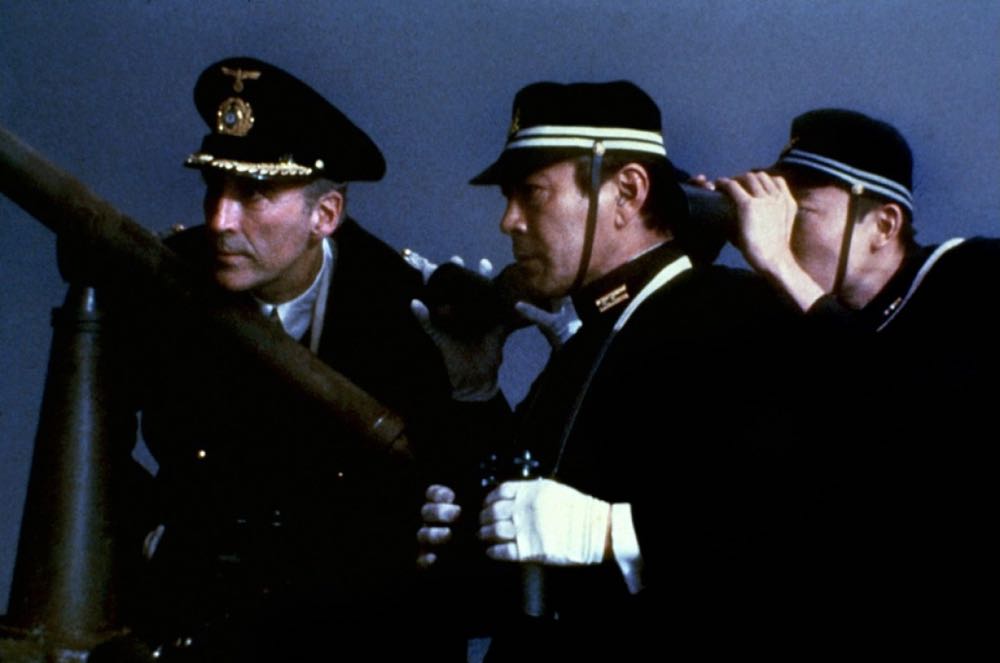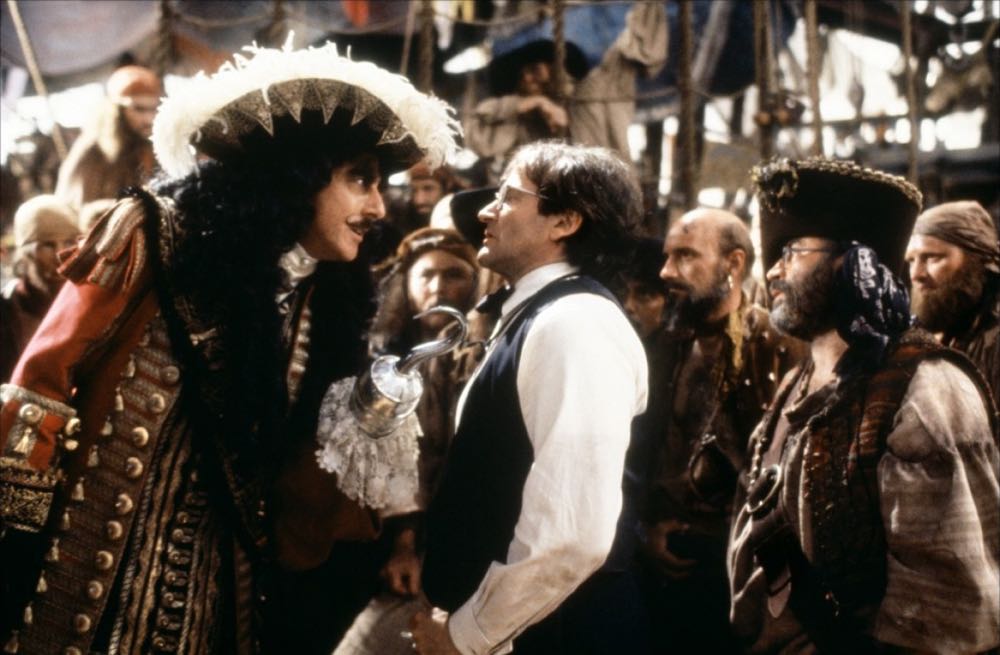Full Disclosure 2014 The Directors Cut - Steven Spielberg








Duel (1971, USA)
Nominated for the Golden Globe for Best Movie Made For TV
Pierce Conran - Contributing writer
Made early in his career, the TV film Duel (1971) shows off Spielberg’s developing craft as a filmmaker when he was still only 25. The story is a simple one, pitting salary man David Mann (Dennis Weaver), on a drive home through the California desert, against a deranged truck driver. Over 90 minutes, Spielberg steadily ratchets up the tension as he invites us to share in one man’s nightmare. No reason is ever given for the truck driver’s actions and most of the story features a man in his car while an ominous presence fills his rearview mirror, but Spielberg uses this leanness to his advantage, allowing the threatening presence and a sense of panic to seep into every corner of the frame.
The film takes a little time to get going and repeats itself in the early stages but things heat up when the threat becomes more palpable, especially when it takes a break from the claustrophobia of the Plymouth. Even at this early stage, Spielberg displays a knack for large set pieces not to mention a hint of Jaws (1975). Other works that Duel appears to presage include The Hitcher (1986).
Spielberg would go on to bigger and greater things in the years and decades to follow but his intuition for cinema was already plainly evident at this early stage. Let’s not forget that the man directed a 140-minute science fiction film (Firelight) that was screened in his local cinema at the tender age of 16.
The Sugarland Express (1974, USA)
Winner of the Best Screenplay award at the Cannes Film Festival
Loic Valceschini - Contributing writer
I've always been quite sensitive towards Steven Spielberg's films, ever since I first saw Jurassic Park as a kid. It showed me the kind of magical prowess that cinema was capable of doing, which impressed me so much that I watched my dad's VHS dozens of times. But since the mid-2000s and Spielberg's disappointing Indiana Jones and the Kingdom of the Crystal Skull, I've been less excited by his new projects. That's why I decided to look way back on his career and pick The Sugarland Express – Spielberg's first theatrical feature – for this Full Disclosure.
The plot is quite simple: two young parents on the run want to win back custody of their child. On their way to Sugarland, they're forced to kidnap a cop, which puts the entire police force on their tail. Although it's always a bit tricky to read an artist's debut in the light of his entire career, the perspective often tends to be revealing. This is the case in 1974's The Sugarland Express, which carries a lot of elements that will constitute Spielberg's future cinema. As such the film does not only initiate his long-term collaboration with composer John Williams, but also bears the aesthetic mark of this auteur.
Spielberg offers a meticulous mise en scène, especially with his dolly shots that leave no room for hazard, where every inch of set and space becomes involved in his orchestrated direction. Foreshadowing the iconic sequence in 1975's Jaws, a beautiful reverse tracking shot shows a hidden sniper aiming at the couple driving, while a breathtaking 360-degree pan allows a whole dialogue involving people between two cars to take place, which is of course reminiscent of the impressive long take in 2005's War of the Worlds.
As in most of Spielberg's films, a humorous dimension tends to counterbalance some of the dramatic situations. In The Sugarland Express, it also allows the director to avoid viewers to develop too many comparisons with Arthur Penn's similar but much more intense Bonnie & Clyde, which was released only seven years before Spielberg's film. Retrospectively, I wish Spielberg could go back to this kind of cinema, detached from too much seriousness yet with solid techniques and great performances.
1941 (1979, USA)
James Marsh - Asian Editor
Planted squarely in the middle of Spielberg’s incredible run, from the late 70s into the 1980s, which began with Jaws and Close Encounters of the Third Kind, and continued with Raiders of the Lost Ark and E.T. The Extra-Terrestrial, comes this strange misfire. A period war film played out as a madcap screwball comedy, 1941 takes place in California in the wake of the Japanese attack on Pearl Harbor. As the mainland residents reel in fear at the prospect they will be next, young men flock to enlist. Meanwhile, daily life - in the form of adolescent hormonal urges and overprotective parenting - struggle to continue amidst the growing hysteria.
Perhaps seen at the time 1941 may have fared better, but 35 years on the humour simply isn’t strong enough and a number of the celebrity cameos fail to make the intended impact. Chief among these is John Belushi, whose cameo as a renegade fighter pilot is perhaps the film’s iconic image, but his presence proves inconsequential and not particularly amusing. Way better are the spirited performances from Mifune Toshiro and Christopher Lee as the Japanese submarine commander and his Nazi comrade, scouring the Western seaboard for Hollywood - in order to destroy it. However, even their presence, nor the self-referential opening riff on Jaws, can save this bloated, unwieldy and poorly executed melange of unfocused excess.
The Goonies (dir. Richard Donner, 1985, USA)
Jim Tudor - Featured Critic
I'm 41 years old. That makes me one of the lucky ones. My age places me squarely in the moviegoing sweet spot for experiencing Spielberg at his supernova apex. I was Elliot's age when E.T. came out. I was a wide-eyed grade school kid for the first two Indiana Jones movies. By 1984, the director had earned the collective goodwill that had us readily lining up for anything with his name attached. That was the year of Joe Dante's Gremlins, a dark and sinister comedy that was suspiciously marketed as another E.T.. As a kid, I liked Gremlins, even though my dad did not. For many, the hoodwinking of that film was what began to tarnish the Spielberg name. But not for me. For me, it was the following year, with another film his name was attached to, but didn't direct, Richard Donner's The Goonies.
Yeah, yeah - I know that the whole point of this exercise is to watch a film by the assigned director that we haven't seen. By writing about The Goonies I'm pretty much violating the rules twice. But, it's okay because when The Goonies hit the scene, Spielberg's name was tethered to it in all the advertising. It's safe to say the movie exists first and foremost because of his involvement (from a story and production standpoint). And, I saw the film, but only once, when it came out. For nearly 30 years, the phenomenon of The Goonies has completely escaped me. Even as a 12-year-old, although I didn't hate it, I had little use for it. Having seen most other Spielberg films, the time felt right to finally revisit this now-ingrained bit of beloved 1980s pop culture. Maybe I'd finally see what I missed back then.
Nope. The Goonies is pretty much the same experience I remember from 1985. Same pack of incessantly snarky/panicked misfits. Honestly, I found them kind of hard to hang with; never mind that they were my age in '85. Same amusement from the cartoony gadgetry of Data, although this time I mused on whether he's in the wrong movie. Ditto for Sloth, a concoction I still don't get. And, same skeleton overload. Therefore, it's fitting that this skeleton-filled movie be my send-off for “Full Disclosure.” I chuckled at parts of The Goonies, and didn't hate it. But The Goonies isn't great – although I suppose it's good enough.
Hook (1991, USA)
Nominated for 5 Academy Awards, including Best Art Direction and Best Visual Effects
Peter Martin - Managing Editor
Starting with his television work in the early 1970s, Steven Spielberg's work spoke to my taste for genre fare, as well as my suburban upbringing. He was my favorite director … until he "grew up" and sought to make more "respectable" yet less personal films like The Color Purple (1985) and Empire of the Sun (1987). While I enjoyed Indiana Jones and the Last Crusade (1989), I didn't even bother to see Always in a theater, and when I caught up with it on video, I found it barely a patch on the original film, A Guy Named Joe. What happened to my favorite director?
Given its premise - Peter Pan grows up and returns to Neverland to reclaim his children - I had no desire to see Hook when it came out in 1991. Its subsequent critical bruising and lack of endorsement by friends strongly discouraged me from checking it out. But as one of only two remaining Spielberg titles that I hadn't seen, I bit the bullet.
Sheesh! I felt quite open-minded about the idea of an adult Peter Pan who has forgotten all about Neverland and is now ignoring his children in favor of his busy life as a business executive. But the execution is quite painful to watch, as the film paints with very broad strokes and draws out every obvious point. Its second act - Peter endures training by the shrill Lost Boys while Captain Hook tries to capture the heart of Peter's son Jack - feels interminable, and could have been cut entirely, thus slashing an hour from the patently absurd 144-minute running time.
Robin Williams' performance occasionally evidences verve, but is otherwise drowned in sledgehammer sentimentality, which afflicts the movie as a whole - his sentimental tendency is Spielberg's biggest downfall as a filmmaker. Dustin Hoffman, Julia Roberts, and Bob Hoskins each hit one note only, representative of the cast as a whole. Hook is a slog to watch, and in the end accomplishes little more than making one wish for a better movie.
Lincoln (2012, USA)
Winner of 2 Academy Awards including Best Actor, nominated for 12 Academy Awards, including Best Picture and Best Director
Shelagh M. Rowan-Legg - Contributing writer
Steven Spielberg has always had his finger on the pulse of the Hollywood zeitgeist. He might have started in horror and adventure films (his early films, in my opinion, remain his best), but slowly moved more towards social issues, which (other than his ill-advised foray back into Indiana Jones territory, which for some reason he seems intent on continuing) appears to be where he’s happy these days.
Given current political upheavals and continuing problems with racism and discrimination (to put it mildly) towards African Americans in the US, I thought it appropriate to watch Lincoln. This is a subject he has approached before, in The Color Purple and Amistad, though this new subject would fit into the current trend of historical biopics that usually get a lot of attention and awards.
Thanks to Tony Kushner’s screenplay (I’m guessing the source material helped, I haven’t read it) and that cast, I was drawn into the story far more than I had expected. This is a story about negotiation, political compromise, and rooms of power. Granted, there wasn’t anything in the story that was unexpected. Some scenes were more interesting than others, and there is at least some acknowledgement that, for many on the Union side, their anti-slavery stance was less to do with human rights and more for the economic reason of slaves taking paid work away from whites.
Lincoln arguably has the most heavy-weight cast of any Spielberg film, and it’s really about them, and the writing. While a great supporting roster that includes David Strathairn, Sally Field and Tommy Lee Jones (among others) helps, this film lives and dies with Daniel Day-Lewis. Luckily, you can always count on Day-Lewis losing himself in a part, and he carries off the world-weariness, fierce intelligence and almost imperceptible yet confirmed negotiation talents of Lincoln, at least as he is portrayed in history.
As a historical biopic, the film more or less works, in that I learned some details of the amendment and how it was passed into law. There weren’t any surprises per se, in that I could see how it all came together. And while I don’t find Spielberg’s work exciting or original anymore, it was interesting to watch. But it’s not going to make me go rushing back to him.

Around the Internet
Recent Posts
THE COPENHAGEN TEST Review: Under Surveillance
Friday One Sheet: The Best Posters of 2025
THE PLAGUE Review: Zero for Conduct Again
Leading Voices in Global Cinema
- Peter Martin, Dallas, Texas
- Managing Editor
- Andrew Mack, Toronto, Canada
- Editor, News
- Ard Vijn, Rotterdam, The Netherlands
- Editor, Europe
- Benjamin Umstead, Los Angeles, California
- Editor, U.S.
- J Hurtado, Dallas, Texas
- Editor, U.S.
- James Marsh, Hong Kong, China
- Editor, Asia
- Michele "Izzy" Galgana, New England
- Editor, U.S.
- Ryland Aldrich, Los Angeles, California
- Editor, Festivals
- Shelagh Rowan-Legg
- Editor, Canada














